A Call to Repentance and Renewal in the United States of America
It becomes a people publicly to acknowledge the over-ruling hand of Divine Providence and their dependence upon the Supreme Being as their Creator and Merciful Preserver…and with becoming humility and sincere repentance to supplicate the pardon that we may obtain forgiveness through the merits and mediation of our Lord and Savior Jesus Christ.
—Samuel Huntington, a signer of the Declaration of Independence Representing Connecticut—
Where the Spirit of the Lord is, there is liberty.
—2 Corinthians 3:17—
Key point: God is the source of liberty, and Americans are losing liberty because we’ve ignored and in some cases rejected God. However, it isn’t too late to change direction!
The first half of this article is available here in the form of a printable PDF file.
In a Bible study/history lesson recently published, we embarked on a quest to unearth what America’s Founding Fathers would have thought about Marxism and what they believed about numerous Bible passages that speak to Marxist ideas. We concluded with this observation:
Karl Marx believed that the people exist for the government, but
America’s Founding Fathers believed government exists for the people.
Specifically, what did the Founding Fathers believe government ought to do for the people? The answer isn’t hard to find. We see it clearly in the Declaration of Independence. Thomas Jefferson was the principal author of the Declaration; and when he and 55 additional members of the Second Continental Congress signed their names to the document, they clearly identified the reason government exists. They declared (emphasis added):
We hold these truths to be self-evident, that all men are created equal, that they are endowed by their Creator with certain unalienable Rights, that among these are Life, Liberty and the pursuit of Happiness. —That to secure these rights, Governments are instituted among Men, deriving their just powers from the consent of the governed, —That whenever any Form of Government becomes destructive of these ends, it is the Right of the People to alter or to abolish it, and to institute new Government, laying its foundation on such principles and organizing its powers in such form, as to them shall seem most likely to effect their Safety and Happiness.
Thus, America’s Founders believed government exists, or that it ought to exist, to secure and maintain rights. This is more than significant. We must be very careful here, however; because, as we have said previously (also go here) the view of rights held by the Founders differs profoundly from the perspective on rights held by most Americans today. The Founding Fathers and early leaders of the United States understood that rights are unalienable and God-given. In other words, the rights government is charged to protect already exist, simply by virtue of the reality that God has created human beings in His image. God intends, therefore, for people to be allowed to act freely within the limits of reality and His law.
The view of rights held by the Founders differs profoundly from the perspective on rights held by most Americans today.
What are some of those rights? The Founders named three in the Declaration, but those they named did not constitute an exhaustive list. They said, “among these [rights that exist] are Life, Liberty and the pursuit of Happiness.”
When the Constitution was drafted eleven years later and subsequently ratified, and particularly when the Bill of Rights in the form of the first ten amendments officially was added to the Constitution on December 15, 1791, other unalienable rights were officially named and recognized. Significantly, no exhaustive list of unalienable rights ever has been made. Historians Larry Schweikart and Michael Allen write,
The Ninth Amendment, which has lain dormant for two hundred years, states that there might be other rights not listed in the amendments that are, nevertheless, guaranteed by the Constitution. But the most controversial amendment, the Tenth, echoes the second article of the Articles of Confederation in declaring that the states and people retain all rights and powers not granted to the national government by the Constitution.1
The Nature of Unalienable Rights
Unlike the Founders, Americans today tend to think of rights as created and maintained by government. The Founders, by contrast, saw rights as already present; and, as we have said, they believed it was government’s job to protect those rights so that citizens could exercise them freely.
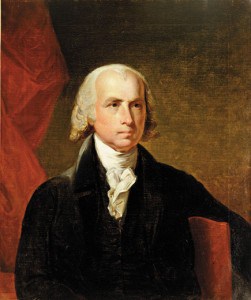
Protecting rights doesn’t mean just that government has to stay out of the way so people can act, but also that government works to make sure that citizens themselves don’t hinder other citizens from exercising their rights and liberties.
The above statement echoes the convictions of James Madison, America’s fourth president. Madison has been called the “Father of the Constitution” because of the strategic roles he played in drafting the Constitution and seeking its ratification, and for his work in drafting and ratifying the Bill of Rights. He observed,
It is of great importance in a republic, not only to guard the society against the oppression of its rulers; but to guard one part of the society against the injustice of the other part.
It is of great importance in a republic, not only to guard the society against the oppression of its rulers; but to guard one part of the society against the injustice of the other part.
—James Madison—
Negative and Positive Rights
Inherent in our fourth president’s observation is a view of rights that is foreign to most modern Americans. You see, two kinds of “rights” exist. Let’s illustrate this briefly by considering the Four Freedoms Franklin Delano Roosevelt upheld in the State of the Union Speech he delivered on January 6, 1941. Roosevelt spoke of efforts to secure these freedoms, or rights, “everywhere in the world”:
-
-
- freedom of speech and expression,
- freedom of religion,
- freedom from want, and
- freedom from fear
-
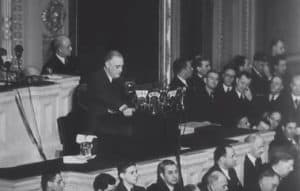
The first two of these are guaranteed by the First Amendment to the US Constitution. How does government protect these rights? It stays out of people’s way, and it makes sure other people and groups stay out of their way so they can act freely. Significantly, government does this by rewarding or commending those who do right and by punishing those who do wrong, just as Paul and Peter described in Romans 13:1-7 and 1 Peter 2:13-17. Because protection of unalienable rights requires negative action on the part of government (making sure people remain unhindered and able to assert themselves as they see fit), an individual’s right speak freely and to worship according to his or her conscience are called negative rights.
Government protects unalienable rights by rewarding or commending those who do right and by punishing those who do wrong, just as Paul and Peter described in Romans 13:1-7 and 1 Peter 2:13-17.
Take notice! This isn’t the case with the third and fourth “freedoms” — “rights” to be free from want and fear. To secure those “rights,” government must take positive action. Thus, social observers call the third and fourth of Roosevelt’s Four Freedoms or “rights” positive rights.
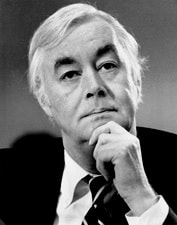
Beware! When government acts to secure and maintain positive rights, it inevitably will have to trample on the unalienable rights of others. Two of the clearest examples of this I know of are the “right” to abortion (which deprives an individual of his or her unalienable right to life) and the “right” to same-sex marriage (which means ignoring everything that nature teaches about marriage and family in and through the inherent differences that exist between males and females). People and nations who ignore and deny reality will pay a heavy price. Reality will fight back! It will come back to bite them in the butt — not because it is mean, but simply because it is what it is. As the late US Senator from New York Daniel Patrick Moynihan observed, “You are entitled to your opinion. But you are not entitled to your own facts.”
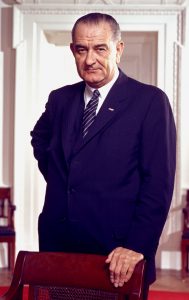
Consider this as well. When government acts to create and maintain positive rights, it almost always makes things worse, even when it has the best of intentions. Welfare has had the overall effect of exacerbating the problem of poverty rather than eliminating it or even reducing it somewhat.
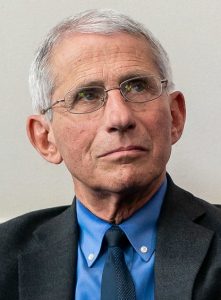
Moreover, many would contend that numerous government efforts to alleviate fear and anxiety during the coronavirus pandemic not only have failed, but actually have increased them. Some “leaders” have even taken advantage of the crisis at hand and have sought to increase their own power. This is not to say that government never should address in any way issues like poverty or matters relating to public health; nor is it to say that such issues have easy solutions. It is to say that government does not have all the answers, and especially it is to say that it should recognize its constitutional limitations. It is the law in America that government must resist trampling on the constitutional rights of its citizens.
Unfortunately, with few exceptions, various government entities have not resisted this temptation. Some have even declared open season on constitutional rights. Up until now, some have gotten away with it; but they have acted illegally and illegitimately. Thomas Jefferson captured the spirit of a free republic when he declared, “Timid men prefer the calm of despotism to the tempestuous sea of liberty.” Samuel Adams did as well when he proclaimed,
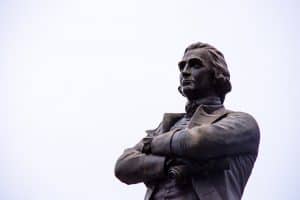
If ye love wealth better than liberty, the tranquility of servitude than the animated contest of freedom – go home from us in peace. We ask not your counsels or arms. Crouch down and lick the hands which feed you. May your chains sit lightly upon you, and may posterity forget that you were our countrymen!
Returning once more to the so-called “rights” to abortion and same-sex marriage, we are compelled to emphasize that these positive “rights” deny the obvious. In other words, they deny self-evident truths, even asserting that evil is good and good is evil. Though clearly imperfect, America’s Founding Fathers could discern good from evil. They understood the realities that “the Laws of Nature and of Nature’s God” unveiled in the moral and ethical realms of human existence. We must recover and once again uphold their perspectives — and not just the perspective America’s Founders held on rights.
But let’s pause for a moment. When considering the matter of equality, an important question arises.
What About Slavery?
Many people would object to our discussion of rights and now equality on the grounds that numerous Founding Fathers were slaveowners, even as they declared that “all men are created equal.” They
would call some of the Founders hypocrites for owning slaves, and they might even call all of them hypocrites for upholding the ideals of equality and liberty for everyone without working harder to eliminate the glaring evil around them. While I recognize the tension between belief and practice, I also believe we need to appreciate the Framers’ opposition to slavery in a world where the institution was a part of the normal course of life.
Prying away an institution from the fabric of society and getting rid of it is a process, not an overnight event.
I have an idea. Abortion is a great evil; let’s eliminate it! Can you see the challenges this quest throws our way, even though we understand this goal is essential? Certainly we must do everything we can to change the posture of society toward innocent life, but our strategy must be multi-pronged, and we must view our quest long-term. We must work to win hearts, minds, elections, and many other battles on multiple fronts.
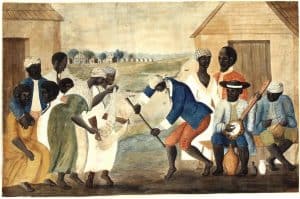
The Founders who were opposed to slavery did see the cause of freedom for all as a worthy and essential long-term quest. Certain others who were slaveowners had had their consciences stirred and were compelled to rethink their views (see the quotations at the top of this article). Accordingly, seeds that would bear fruit against slavery were planted in the Declaration of Independence (see Principle 4 in this article) and the Constitution of 1787. John Jay became the first Chief Justice of the Supreme Court of the United States. He observed that before the American Revolution and the establishment of a stable government for the independent states, very little had been done to pry the institution of slavery from American life. Yet with the founding of America, abolitionist efforts took root in earnest.
Consider Additional Ideals the Founding Fathers Upheld that Modern Americans Fail to Understand
Let’s now focus on several additional themes we see in the Declaration and seek to discern how the Founding Fathers understood them. In a previous post, I contended that the thinking of modern Americans is different from the Founders in at least five instances — in relation to
rights, law, liberty, equality, and entitlements.
I now believe that at least three more terms (and perhaps even more) could be added to this list: happiness, duty, and God.
Consider carefully this portion of the Declaration of Independence and the instances in which these words and forms of these words are used.
When in the Course of human events it becomes necessary for one people to dissolve the political bands which have connected them with another and to assume among the powers of the earth, the separate and equal station to which the Laws of Nature and of Nature’s God entitle them, a decent respect to the opinions of mankind requires that they should declare the causes which impel them to the separation.
We hold these truths to be self-evident, that all men are created equal, that they are endowed by their Creator with certain unalienable Rights, that among these are Life, Liberty and the pursuit of Happiness. —That to secure these rights, Governments are instituted among Men, deriving their just powers from the consent of the governed, —That whenever any Form of Government becomes destructive of these ends, it is the Right of the People to alter or to abolish it, and to institute new Government, laying its foundation on such principles and organizing its powers in such form, as to them shall seem most likely to effect their Safety and Happiness.
Prudence, indeed, will dictate that Governments long established should not be changed for light and transient causes; and accordingly all experience hath shewn that mankind are more disposed to suffer, while evils are sufferable than to right themselves by abolishing the forms to which they are accustomed. But when a long train of abuses and usurpations, pursuing invariably the same Object evinces a design to reduce them under absolute Despotism, it is their right, it is their duty, to throw off such Government, and to provide new Guards for their future security.
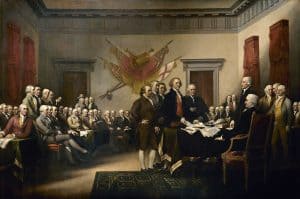
It isn’t just these terms that we fail to understand, either. It’s also how the ideas they represent relate to one another and especially to God.
-
-
- God and His laws establish the track on which men and nations must travel to attain happiness, fulfillment, greatness; and to reach their God-given potential.
- Equality as used by Jefferson and the rest of the Founders refers to equality of worth and affirmation of natural opportunities, not to equality of outcomes achieved by government manipulation of outcomes, opportunities, or both.
- In recent decades, Americans foolishly have rallied around the banner of equality alone when, in the original statement on America’s “birth certificate,” the meaning of the word equal is informed, tempered, and shaped by the word created. Created, in turn, is linked inseparably to the divine title Creator. The implications of these realities, of course, are enormous.
- Those things to which we as human beings are entitled, including our rights, are determined by “the Laws of Nature and of Nature’s God.”
- Authentic liberty is impossible without a recognition of and a respect for God’s moral and ethical standards — His laws.
- God’s laws, and nature’s laws as well, are far more liberating than restrictive when they are properly respected.
- Human beings do not have a right to happiness, but to pursue it within reality’s limits and the limits of God’s natural and moral laws.
- Rights are inextricably linked to duties, which cannot be fulfilled without self-discipline.
- Every individual is accountable to God.
- Government also is accountable to God.
- Government has limited authority and is accountable to the people it is appointed to serve.
- Citizens have both a right and a duty to hold government accountable, to require it to fulfill its God-given role, and even, if necessary, “to alter or to abolish it, and to institute new Government, laying its foundation on such principles and organizing its powers in such form, as to them shall seem most likely to effect their Safety and Happiness.”
-
The Linchpin to all of this Is God
Here is the point that we, as 21st-century Americans, must not miss. The key difference between the worldview the Founders held and the worldview most modern Americans hold today is that the Founding Fathers, and most of the citizens in the colonies and early America as well, believed in and revered the God of the Bible. Today, even though many Americans would say they believe in God, the God in which they believe isn’t really the God the Bible reveals. That God is holy and perfect, sinless, and a God who cannot abide, but must thoroughly judge and punish sin and disobedience.
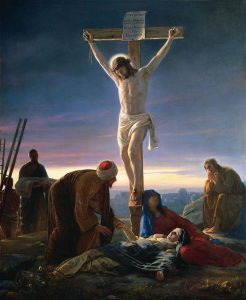
Yes, He is loving, but He cannot welcome us into His presence if we seek to approach Him on our own merit. The only hope we have is to come to Him on His conditions, on the merits of Christ, His Son, who lived a holy life and died on the cross as an atoning sacrifice for human sin. Dying on a Passover Friday, He was buried, but He rose again on the following Sunday, proving that God accepted Jesus’ death as substitute payment for human sin.
The Founding Fathers, the overwhelming majority of them, believed these teachings. They believed in a God to whom they knew they were accountable. And overall, they believed the Scriptures that reveal Him to humankind. Furthermore, they interpreted all of life throughout the lens of biblical teachings.
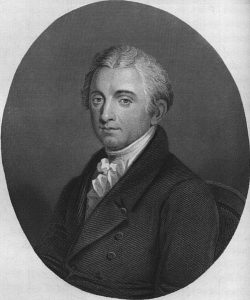
Consider this statement by Gouverneur Morris, brother to Lewis Morris (whom we quoted earlier) and a member of the Committee of Style and Arrangement for the Constitution. About the Bible Morris declared,
The reflection and experience of many years have led me to consider the holy writings not only as the most authentic and instructive in themselves, but as the clue to all other history. They tell us what man is, and they alone tell us why he is what he is: a contradictory creature that seeing and approving of what is good, pursues and performs what is evil. All of private and public life is there displayed. … From the same pure fountain of wisdom we learn that vice destroys freedom; that arbitrary power is founded on public immorality.
Ahhhh! Do you see it? Morris not only believed in the Scriptures and in the God to whom they point; he also believed the Bible provided the key to understanding “all other history” — everything else he needed to know about life and eternity. Morris, as well as most of the other Founding Fathers, held a biblical or a Christian worldview.
America Must Repent and Return to God
The starting point for all of this — the linchpin — is believing in the God the Bible reveals:
[The] God [of the Bible] exists, has established an ordered and moral universe, and holds humanity accountable.
Significantly, this very principle that sits at the top of our list of “Ten Biblical Truths Embedded in the Declaration of Independence.” Now, I’ll be the first to tell you that the fact this principle is embedded in the Declaration of Independence doesn’t make it true; rather, it’s true because it has been revealed to us by God, who never can lie. The Founders believed it and responded accordingly, and that is what we, too, must do if we would have any hope of enjoying the blessings of liberty once more.
I realize that America is not the kingdom of God. The truth is that God does not need America to accomplish His purposes in the world, and this nation stands on the brink of His harshest judgment for her transgressions and grievous sins. No, God does not need America, but America needs God! She needs to return to His ways, the ways she traveled in her early days, months, and years.

As the ancient prophet Jeremiah expressed,
Thus says the Lord:
“Stand in the ways and see,
And ask for the old paths, where the good way is,
And walk in it;
Then you will find rest for your souls” (Jer. 6:16).
If we as a nation are going to return to once more embrace authentic principles of liberty — those principles upon which our nation originally was founded — we must begin here, with God. We must have and exercise “worldview Christianity.”
The additional nine principles embedded in the Declaration also need to be rediscovered, reclaimed, and reasserted.
Do you want to learn more? I invite you to embark on a treasure hunt for priceless and eternal truths God has revealed in His Book, the Bible.
First, make sure you’re right with God yourself. Then learn and practice Christianity as a way of life, as a worldview. America’s Founding Fathers give us grand examples to follow in this regard.
Again, I invite you to learn from them through this Bible study series — but most importantly, learn from the God they loved and served…
…and cooperate with the Lord in calling America back to Him.
If there was hope for Nineveh, there has to be hope for America:
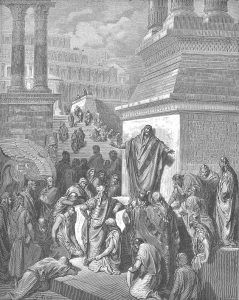
Jonah 3:4 And Jonah began to enter the city on the first day’s walk. Then he cried out and said, “Yet forty days, and Nineveh shall be overthrown!”
5 So the people of Nineveh believed God, proclaimed a fast, and put on sackcloth, from the greatest to the least of them. 6 Then word came to the king of Nineveh; and he arose from his throne and laid aside his robe, covered himself with sackcloth and sat in ashes. 7 And he caused it to be proclaimed and published throughout Nineveh by the decree of the king and his nobles, saying,
Let neither man nor beast, herd nor flock, taste anything; do not let them eat, or drink water. 8 But let man and beast be covered with sackcloth, and cry mightily to God; yes, let every one turn from his evil way and from the violence that is in his hands. 9 Who can tell if God will turn and relent, and turn away from His fierce anger, so that we may not perish?
10 Then God saw their works, that they turned from their evil way; and God relented from the disaster that He had said He would bring upon them, and He did not do it (Jonah 3:4-10).
Copyright © 2021 by B. Nathaniel Sullivan. All rights reserved.
A personal note: I’m grateful to Jon Harris and his podcast, Conversations That Matter, for helping me get the word out about the Bible studies I’m producing and making available. Please watch Jon’s podcasts regularly; he’s God’s messenger for our time.
Unless otherwise indicated, Scripture has been taken from the New King James Version®. Copyright © 1982 by Thomas Nelson, Inc. Used by permission. All rights reserved.
Note:
1Larry Schweikart and Michael Allen, A Patriot’s History of the United States: From Columbus’s Great Discovery to the War on Terror, (New York: Sentinel, 2004), 126.
top image credit: this image is adapted from a 1975 postage stamp
image credit: Lewis Morris
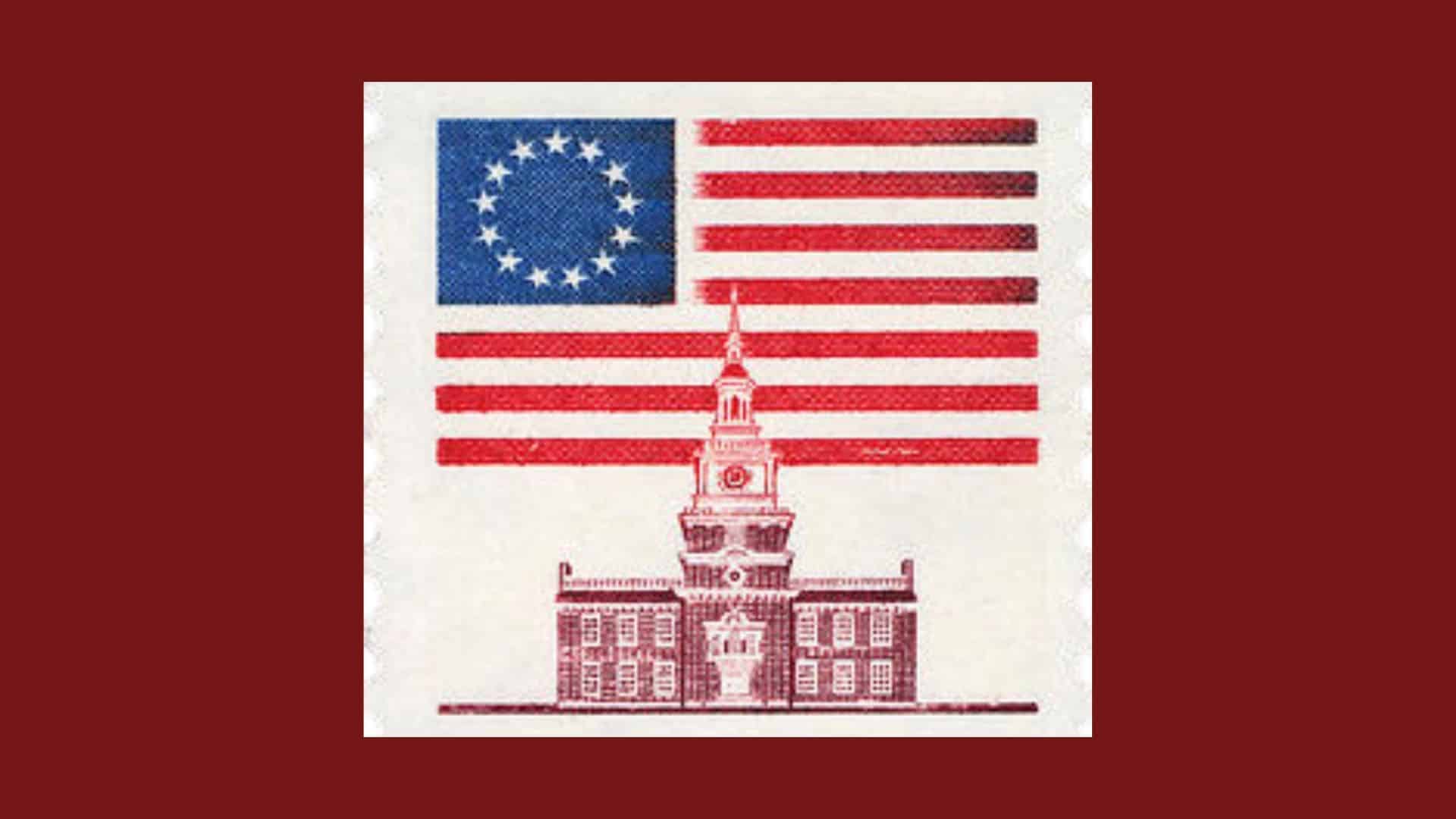
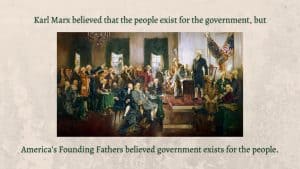
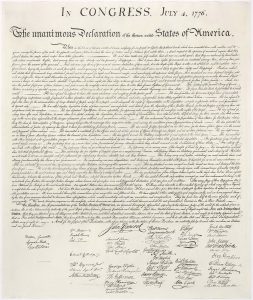
Be First to Comment